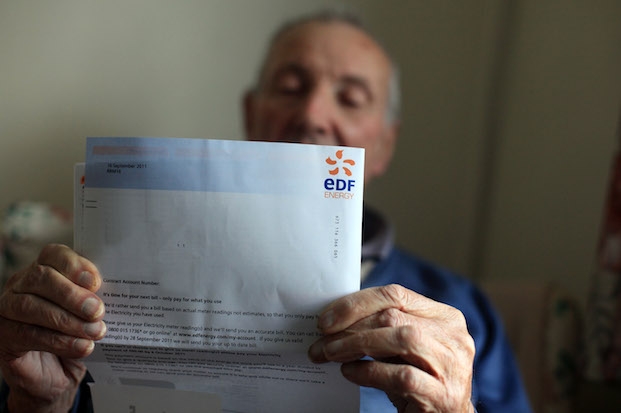Yesterday – in a crunch vote in the House of Lords – Labour were narrowly defeated by 216 votes to 202. The issue? Energy bills. Except, this time, the Labour Party was demanding that your bills should RISE by £125 a year.
Confused? The quarrel yesterday was all about the ‘2030 decarbonisation target’ – a technocratic term, which means in essence a new carbon tax on your utility bills. It would be a tax on everything. A tax on your fridge, your kettle, your oven, your TV, and every light-bulb in your home. If Britain were to commit to this now, it would mean locking in expensive forms of electricity generation over the next 17 years. Labour voted for this to happen, and they nearly won. If Labour had won yesterday it would have been enshrined in law, costing the average family around £125 a year.
The Labour Party, of course, planned and drove through a whole raft of carbon taxes when they were in power. Ed Miliband was the Energy and Climate Change Secretary who said that his obsession with green levies would to drive up your bills. He hasn’t changed, and now he wants to do the same again. His shadow Energy Minister in the House of Lords yesterday was Baroness Bryony Worthington. I’m sure the Baroness is hardworking and honest enough about her motivations. But she is also a former climate change campaigner for Friends of the Earth, who ‘went on to work at DEFRA as a key member of the team that drafted the Climate Change Bill’.
Yesterday she led Ed Miliband’s demands for a new carbon tax – even though independent research says it would hit the poorest Brits the hardest. For the record: I am not against low carbon electricity. No one is against green technology if it saves money. But it has to be affordable. Slapping new stealth taxes on the poorest pensioners and families is not ‘saving the planet’, and Labour need to wake up to that. Green must be ethical, too.
Inevitably, Labour’s tactic yesterday was to nitpick at the detail: rather than answering the substantive point. So here is how the £125 cost is calculated:
- DECC estimates a 2030 decarbonisation target would mean your energy bills rising by at least £113, due to the impact of higher carbon pricing and high ‘low carbon’ support costs.
- Extensive studies done by Poyry for the Climate Change Committee in June suggested that the true figure could be closer to £125.Their independent report concluded that an extra £7.5 billion in support costs a year would be needed to achieve a 2030 decarbonisation target. That is where the Conservative estimate of £125 comes from.
Labour dispute this. But they have no plausible estimate of how much your bills will rise as a result of their vote yesterday.
Don’t take my word for it. Listen to what the Engineering Employers’ Federation have to say. They represent British manufacturing firms, and have concluded:
‘A fixed target would make the UK and its households and businesses a hostage to fortune… Should current assumptions about the development of carbon capture technology, the level of investment in nuclear power, the cost of offshore wind or the future price of gas prove wrong, the UK could end up committed to an unrealistic and extremely costly target.’
Wise words. We should listen to them. We will never save the planet on the backs of the poorest.
Robert Halfon is MP for Harlow. Follow him on Twitter at @halfon4harlowMP





Comments